Women Who Don’t Want To Be Touched Anymore As They Get Older Usually Have These 11 Reasons
They're not as obvious as you might think.
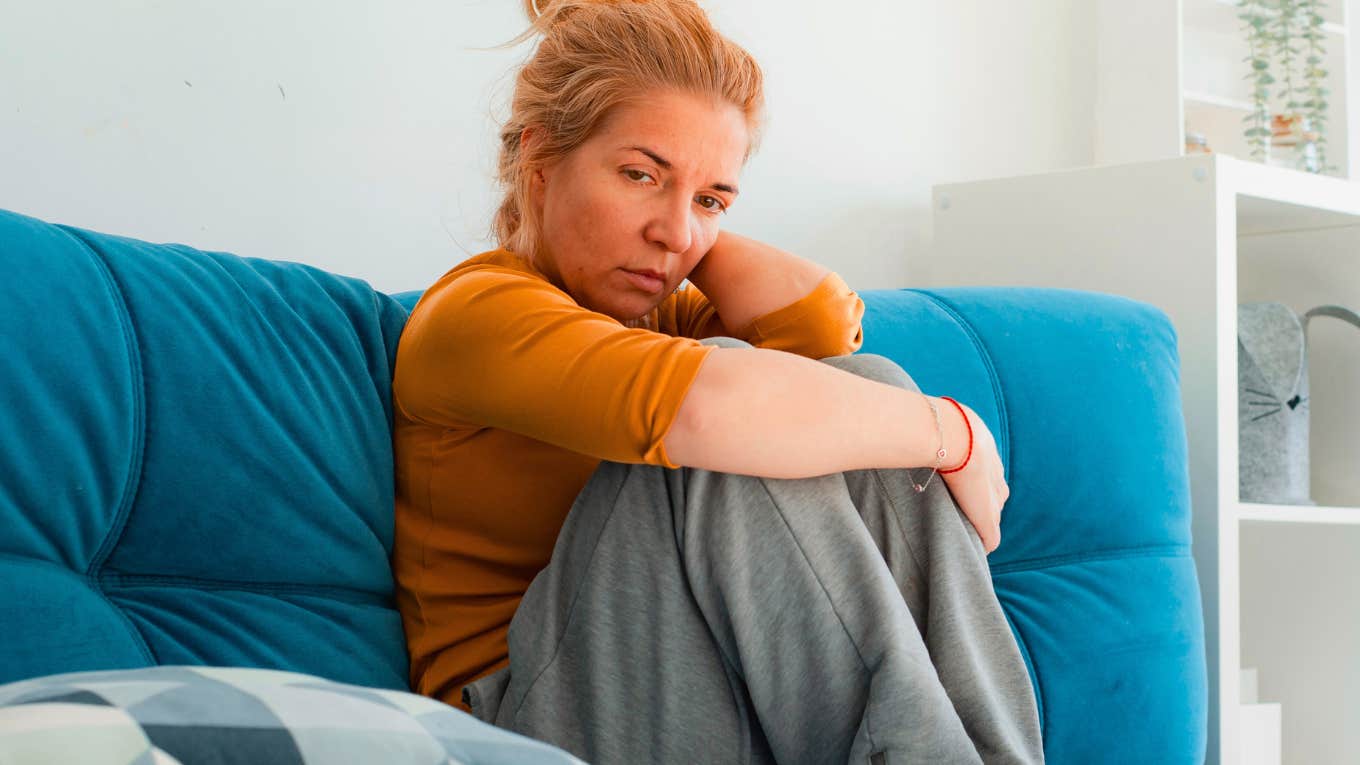 Juliya Shangarey / Shutterstock
Juliya Shangarey / Shutterstock While women certainly receive benefits from physical touch, including greater satisfaction with their body image and better relationships, there are also certain boundaries some women find themselves more likely to enforce over time. Women who don’t want to be touched anymore as they get older usually have multiple reasons stemming from motherhood, past relationships, and other life experiences.
With age, many women make the choice to separate physical touch from the ways they express affection and intimacy in their relationships. Their refined boundaries not only make them feel more comfortable, but they also help to establish healthier and more fulfilling relationships for everyone involved.
Women who don’t want to be touched anymore as they get older usually have these reasons
1. They crave stillness
 Perfect Wave | Shutterstock.com
Perfect Wave | Shutterstock.com
Stillness — both external and internal — is something many women who are in long-term relationships and/or who are mothers likely crave. They’ve been climbed over, grabbed, and used as a human jungle gym at some point or another by their children, so it’s not surprising that they’re better at setting boundaries and protecting their bodily autonomy with age.
Even in their romantic partnerships, women who don’t want to be touched anymore as they get older may associate physical touch with other experiences, making it less relaxing and intimate and more anxiety-inducing.
2. They're uncomfortable with unprompted touch
 Ground Picture | Shutterstock.com
Ground Picture | Shutterstock.com
Whether it’s a handshake, an unwanted hug, or being climbed on by her children, many women who don’t want to be touched anymore as they get older are sick of unprompted and unchosen touch. They want to finally feel in control of their own body and who has access to it.
According to a study from Totaljobs, these women are not alone, as nearly 80% of employees would prefer if casual physical contact was completely removed from the workplace, with another 22% suggesting differences in physical boundaries often lead to “greeting clashes” in professional environments.
3. They’re overstimulated
 Wasana Kunpol | Shutterstock.com
Wasana Kunpol | Shutterstock.com
Many people can quickly become overstimulated when they’re met with too much sensory input. From the brightness of lights to the number of people talking at once and even physical touch, as women get older, they may be more sensitive to this, and therefore more willing to set and enforce boundaries in order to prevent anxiety.
Even if they’re not overstimulated in the present moment, women who don’t want to be touched anymore as they get older usually know they might get there soon if they don't protect their boundaries.
4. They’re experiencing more anxiety
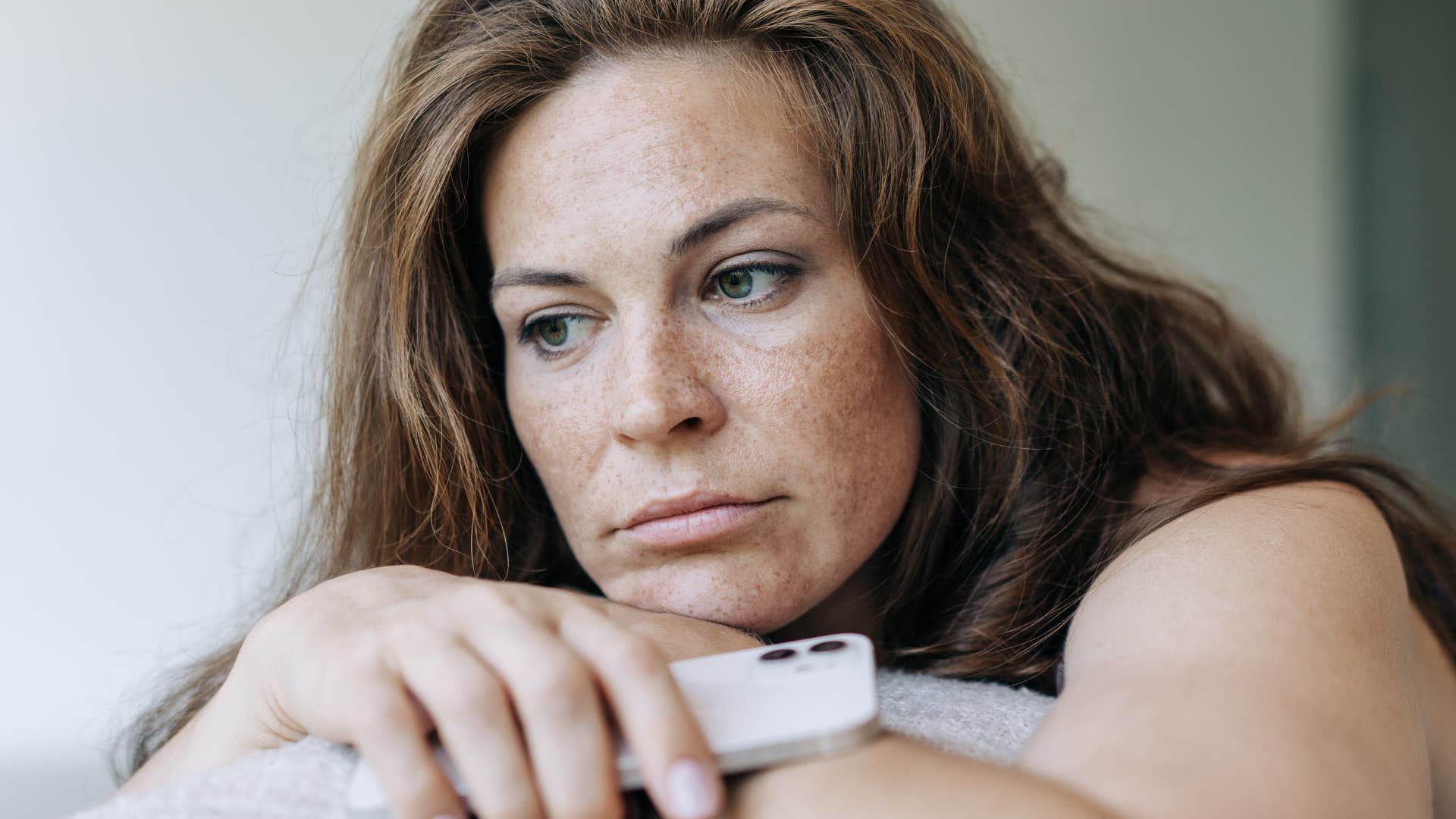 Ilona Kozhevnikova | Shutterstock.com
Ilona Kozhevnikova | Shutterstock.com
Many people who live in a constant state of fight-or-flight often struggle with everyday tasks and experiences like being touched by their partner or being climbed on by their children. As they get older and experience more responsibilities, chances are these women are also grappling with anxiety that puts their nervous system on edge without the right coping mechanisms or mindfulness practices.
Even though it’s simply a stress response, this fight-or-flight state can cause women to avoid physical touch and become more sensitive to casual touches throughout the day, making them easily irritable and annoyed.
5. They won’t tolerate certain behaviors from their kids anymore
 Monkey Business Images | Shutterstock.com
Monkey Business Images | Shutterstock.com
When you teach kids how to respect boundaries around physical touch and consent in their family relationships and friendships early in life, you’re setting them up to have better self-esteem and connections later in life, according to psychologist Anita Schmalor.
Women who don’t want to be touched anymore as they get older typically won’t tolerate certain behaviors from their kids anymore. They’ve hit a breaking point after being clung to by their kids for too long, so they create boundaries to make things more comfortable for everyone involved.
6. They’re healing
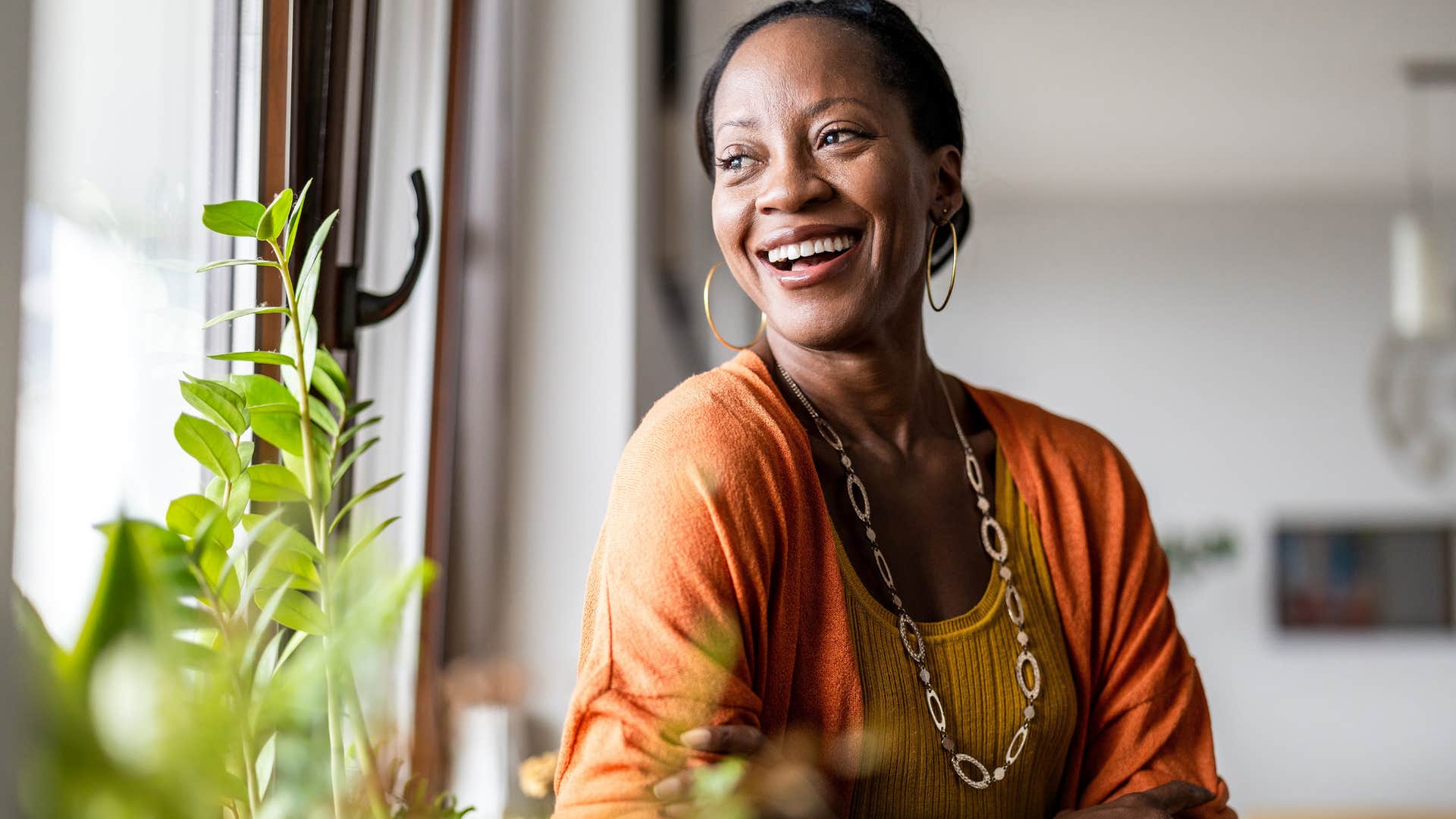 pikselstock | Shutterstock.com
pikselstock | Shutterstock.com
While there’s certainly a great deal of research suggesting that physical touch can be healing for people with unresolved trauma and anxiety, it’s also often something that many people, especially women, have to heal from.
By setting boundaries around the kinds of physical touch she’ll tolerate and allow from everyone in her life, she can intentionally introduce it back into her life in ways that feel comfortable, empowering, and safe.
7. They prefer emotional intimacy
 Pics Five | Shutterstock.com
Pics Five | Shutterstock.com
Building emotional intimacy not only helps to bond partners physically in a healthier way, but it can also boost feelings of happiness, self-esteem, connection, and security in a relationship. Whether it’s protecting open communication or adopting other little habits, couples with the best emotional intimacy are generally the happiest.
Of course, women who don’t want to be touched anymore as they get older still make it a point to prioritize it to some degree to craft healthy partnerships and relationships — intimate and otherwise — but they often focus on emotional connection and intimacy to a higher degree.
8. They’re tired of caring for everyone else
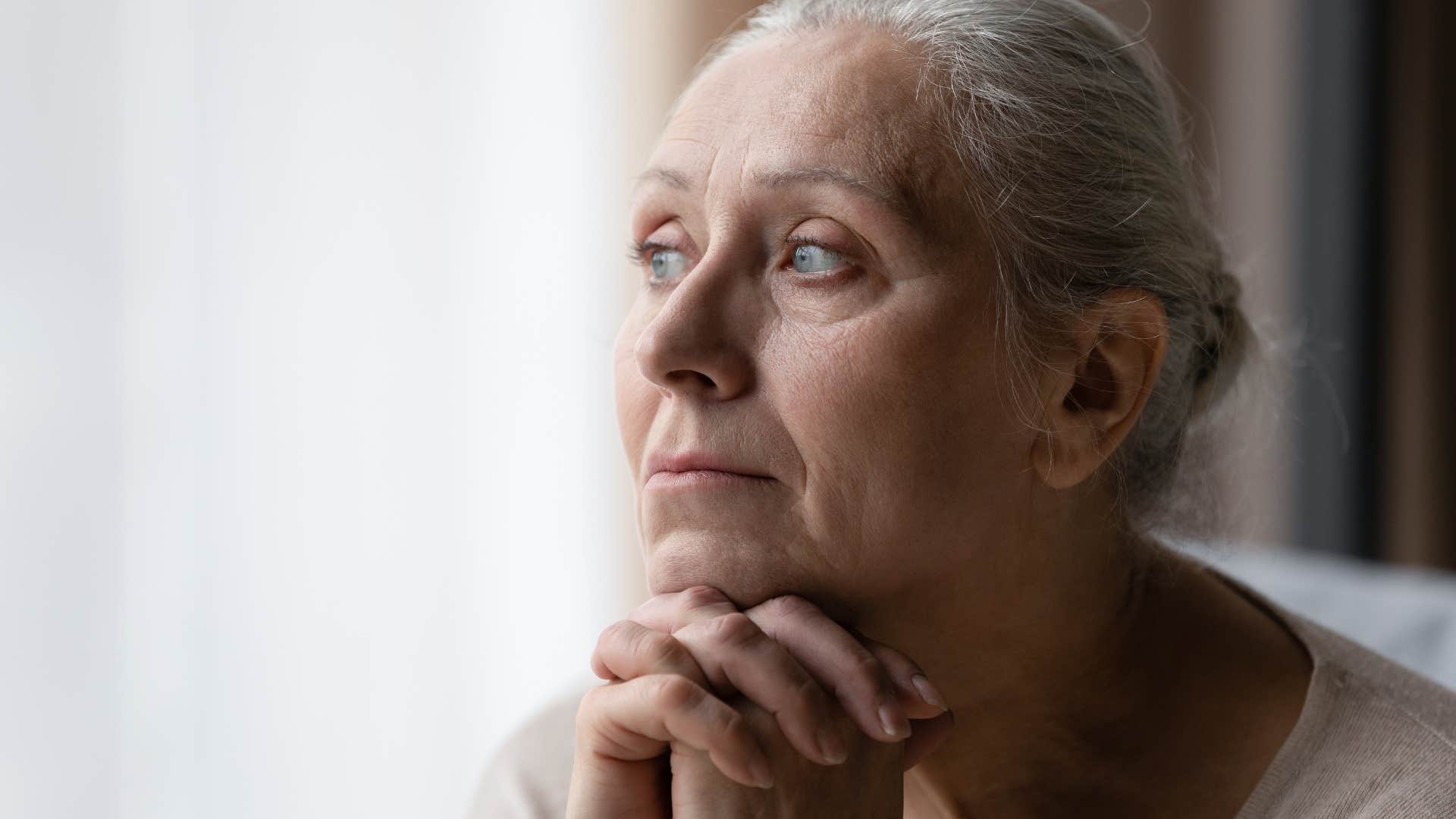 Fizkes | Shutterstock.com
Fizkes | Shutterstock.com
Whether it’s tied to their identity as a mother or fueled by their exhaustion from taking care of physical and emotional labor in their relationships, many women who don’t want to be touched anymore as they get older are usually tired of putting their own needs aside.
They’ve been conditioned to please people, as mothers, daughters, women, and partners, so it’s uncomfortable to set boundaries that are solely focused on them, but it’s necessary as they get older and grow more personally secure and self-aware.
9. They don’t care for PDA
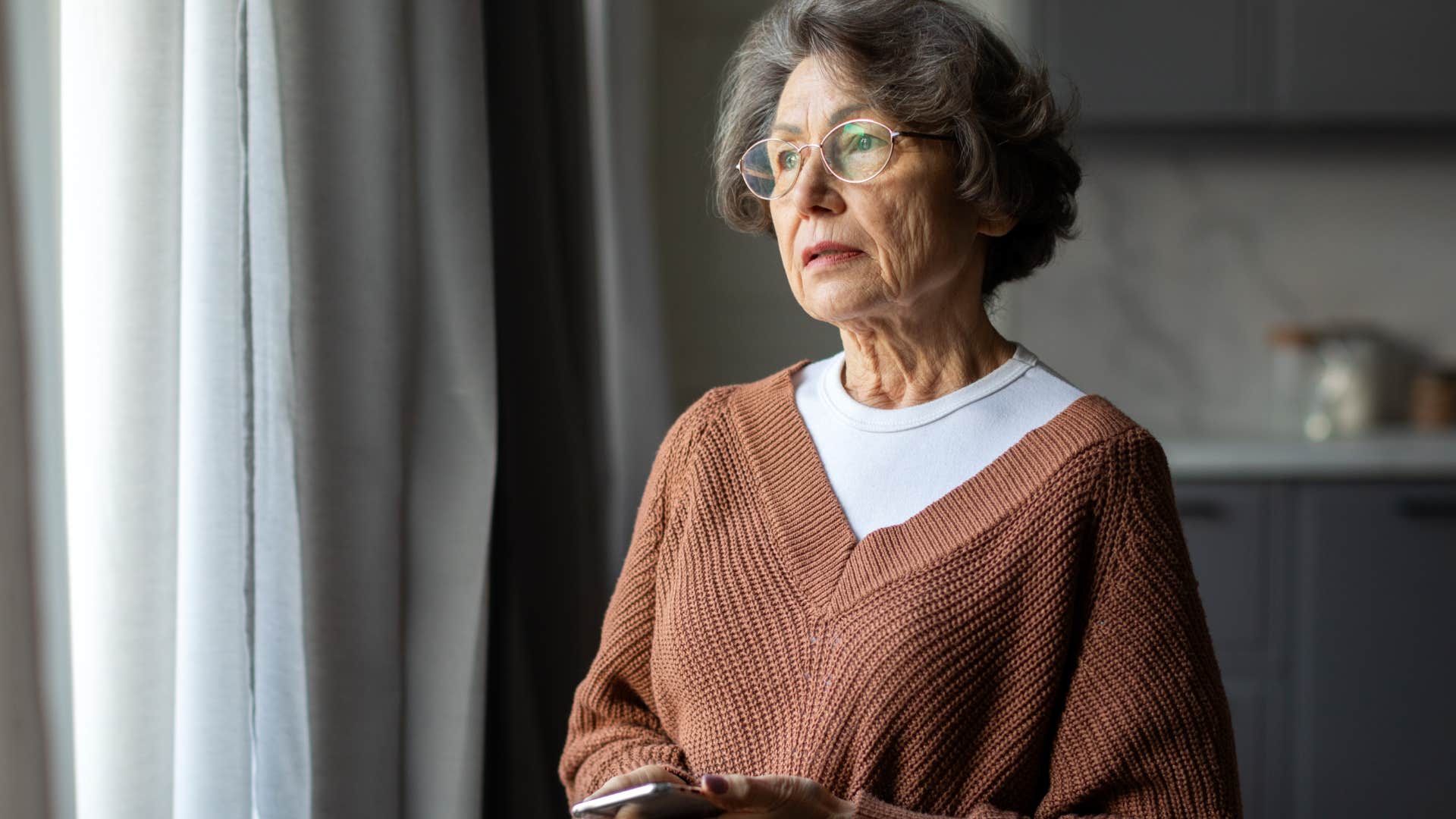 Fast-stock | Shutterstock.com
Fast-stock | Shutterstock.com
According to a 2016 study, many young people engage in “performative affection” to seek approval, envy, and attention from other people in public, rather than simply trying to connect or build intimacy with a partner. However, as women get older, they’re much less likely to make choices and decisions influenced by external validation and opinions.
They don’t care for PDA, especially if it’s performative, and they’d prefer to make intentional time for physical affection and touch when they’re alone with their partners, friends, and loved ones.
10. They respect themselves
 pixelheadphoto digitalskillet | Shutterstock.com
pixelheadphoto digitalskillet | Shutterstock.com
As women grow older, learn to challenge societal pressures, and build better relationships with themselves, they learn to respect themselves in new ways. Whether that’s creating new boundaries around physical touch, drifting apart from their current relationships, or investing in self-care rituals and hobbies, respecting themselves is one of the reasons women may change their minds or values later in life.
Women who don’t want to be touched anymore as they get older may also be acting in a self-respecting way, protecting themselves from developing misguided connections based on physical touch, rather than trust or emotional intimacy.
11. They prioritize their need for space
 Lordn | Shutterstock.com
Lordn | Shutterstock.com
Whether it’s indulging in space, solitude, and alone time in their relationships or finding room for space in conversations, conflicts, and arguments, women who don’t want to be touched anymore as they get older may just find more peace in being alone. Even if it’s just for a few minutes to decompress, recharge, and invest in their personal interests, prioritizing space can benefit everyone in the end.
While it can certainly be uncomfortable, especially in relationships with insecure attachments, this space ensures that when physical touch, intimacy, or communication is reintroduced, it’s done in a healthy manner.
Zayda Slabbekoorn is a staff writer with a bachelor’s degree in social relations & policy and gender studies who focuses on psychology, relationships, self-help, and human interest stories.

